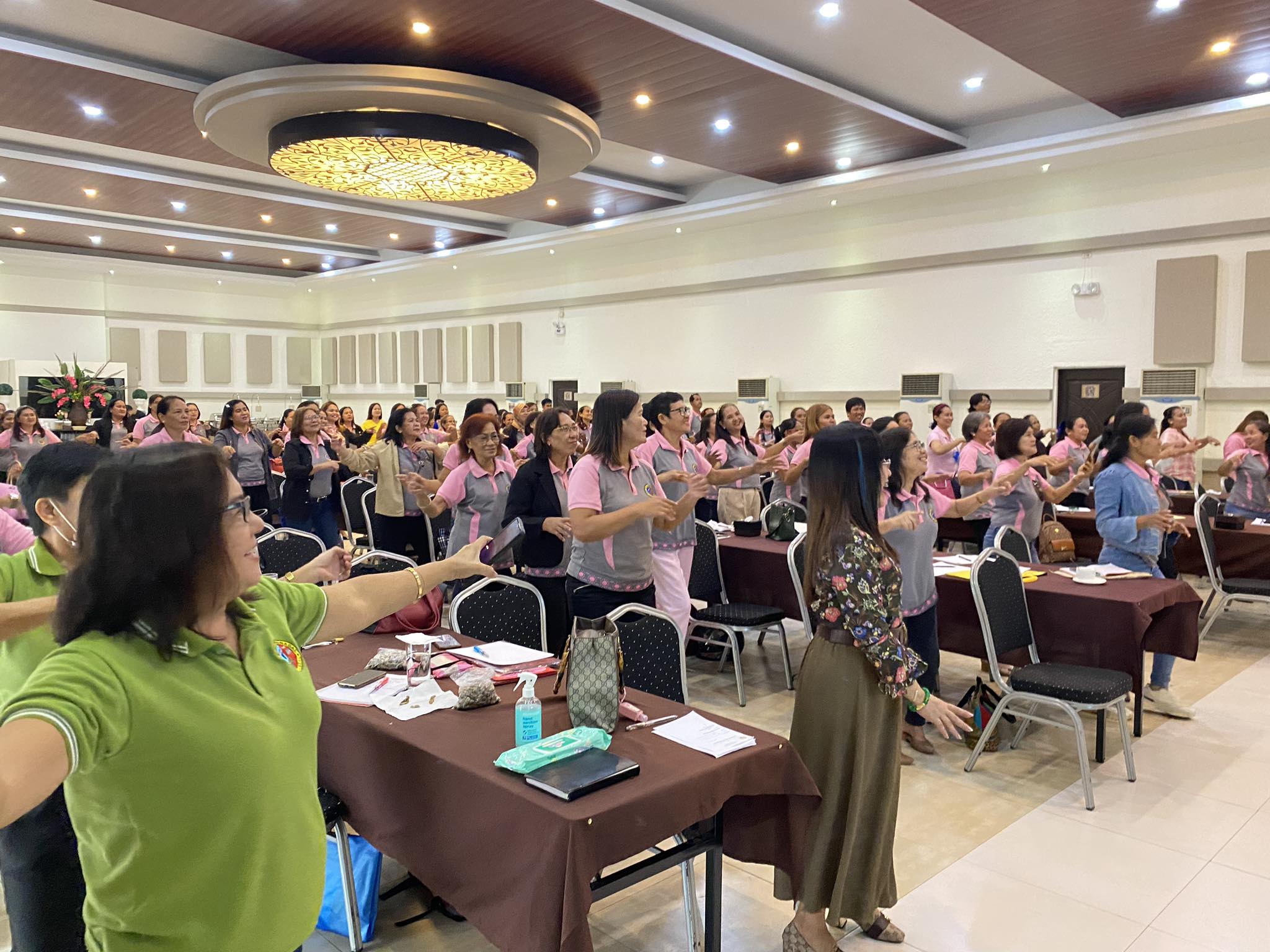City gov’t equips workers as day care centers reopen

The government is constantly working to ensure that child development centers’ capacity is strengthened through well-trained Day Care workers.
Parents and children flocked to the Day Care Center on August 30, 2023, for a Bayanihan Bulilit 2023, Oplan Balik Eskwela. Room beautification and environmental sanitation are critical to the children’s well-being, which workers and parents have provided and worked to achieve, and as a result of a “Bayanihan”.
A 2-day Seminar on Child Development Centers Structuring, ECE Curriculum, and weekly sessions were accorded to approximately 106 workers in the 27 Barangays in order to prepare them for this calendar year and make them adhere to the standards mandated by law. The DSWD is in charge of regulating the quality of these programs for children. Mr. Franklin B. Dayata, National AECETAWPI Training Director, traveled all the way from Manila to train the local workers.
According to Ms. Lynie Lane Castillo, Day Care Worker II, the training is to adequately prepare the workers to ensure that the seven domains, which include gross motor, fine motor, self-help, receptive language, expressive language, cognitive and socio-emotional are implemented properly.
During the seminar, one of the topics discussed was the Child Development Centers Structuring as a policy response to the new roles and demands brought about by current times. They were also updated with the Early Childhood Education (ECE) Curriculum. ECE is a subfield of education theory concerned with the formal and informal education of young children from birth to the age of eight. Early childhood education standards have a direct impact on positive child development.
As prescribed by the Barangay Day Care Law, the center caters to the needs of 0-4 year old children for early childhood care and development. It must provide a comprehensive range of health, nutrition, early childhood education, and social services to ensure the holistic development and growth of children-beneficiaries.
Republic Act No. 6972, the “Barangay (village) Level Total Protection of Children Act”, has a provision that requires all local government units to establish a day-care center in every village; the law institutionalized the features of the day-care program that provide for young children’s learning needs aside from their health and psychosocial needs.
While adjusting to the changes brought about by the pandemic, this year’s preparation for the opening is a real challenge. Looking back on Shirley Duron’s experience as a teacher at Villegas Child Development Center. She is just one of the many workers in the 27 barangays that have faced the challenge of change as a result of the pandemic.
Teachers receive an honorarium of P5,000 from the city government, as well as additional pay from the barangay fund, which ranges from P1,000 to P5,000 per month, depending on the barangay allocation. Although this is not a large amount, Social Worker Castillo believes that it is their commitment, dedication, care, and love for children that keeps them going in the face of adversity. “The challenge was real, but I’m still focused on my goal, which is to provide adequate childcare services for children aged 3 to 4,” Duron once said in an interview.
Students at Day Care Centers are free of tuition, and even benefit from the regular feeding activity through hot meals as part of the government’s supplemental feeding program.
Meanwhile, during the seminar, workers were given the opportunity to discuss and share their learnings and insights, which is an important part of their application process and something they can apply when they return to their respective centers.
According to Castillo, the Daycare is intended to assist working parents, particularly young mothers, in raising their children. The child’s physical and psychosocial needs can be met by enrolling in the center. Castillo added that despite national legislation supporting early childhood care and development, Philippine public daycare centers face issues such as inadequate facilities, limited teaching materials, and insufficiently trained staff. Furthermore, it does not jeopardize the program’s continuity.
The workers at their centers hope that more children will be reached. Koronadal’s Day Care aimed for 3,700 enrollees this year.
Through continuous capacity building among day care workers and accreditation of Day Care centers, the government hopes to provide workers with the tools and skills they need to continue shaping children’s chances for a better future.